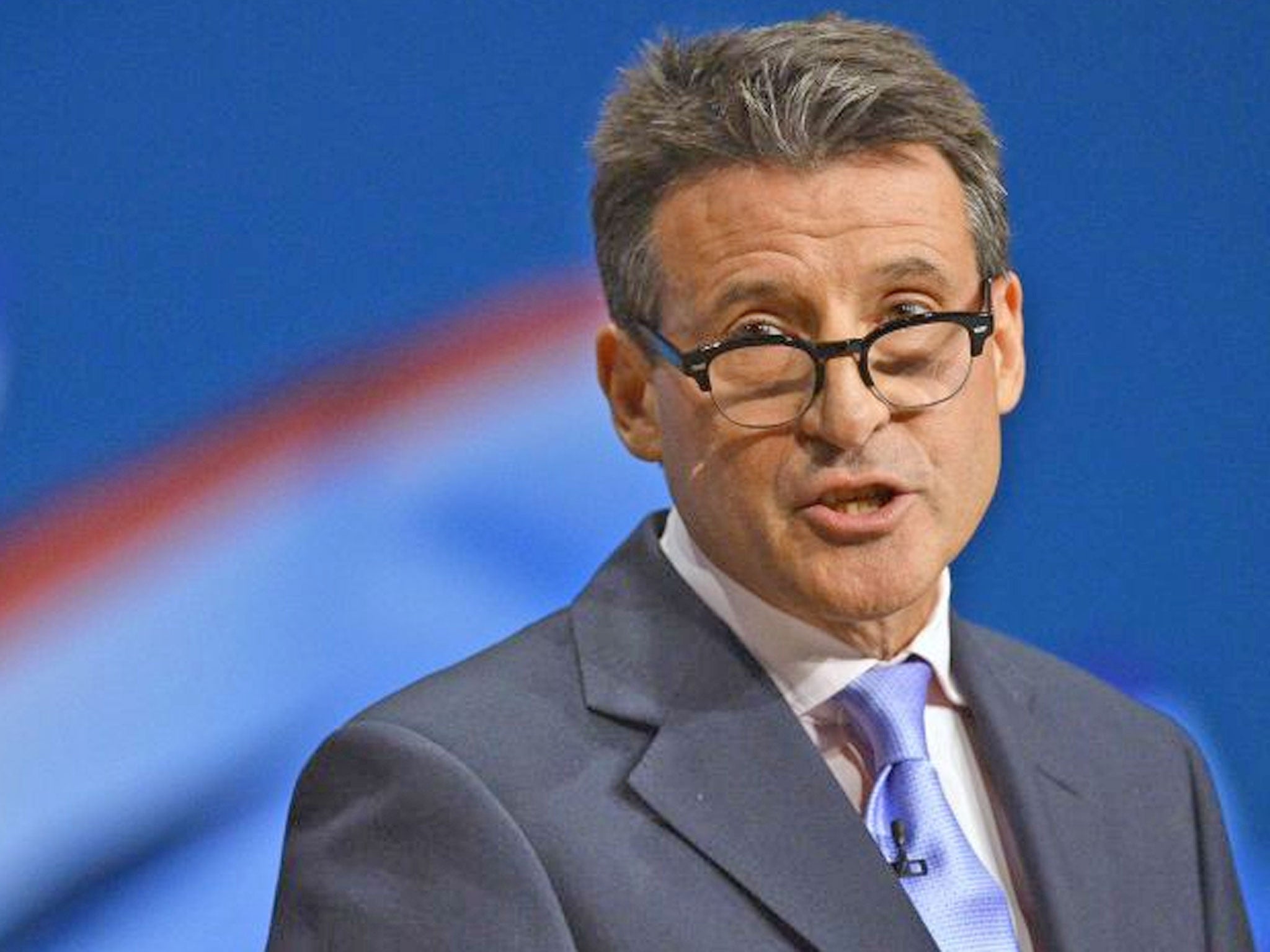Just a fraction of cash generated by Olympics is enough to end drugs war - Kevin Garside
COMMENT: Sebastian Coe faces a difficult task to stop doping if he is elected IAAF president this month

Another day, another horror story in the rotten house of athletics. The figures relating to chemical abuse are sickening enough, but this time incredulity does not spring solely from the corrupt behaviour of cheating athletes but, perhaps even more alarmingly, from the failure of the body responsible for the sport’s governance to police known crimes properly.
When the International Association of Athletics Federations (IAAF) meets to vote in its new president in two weeks’ time, the first responsibility of the winner, be it Lord Coe or Sergey Bubka, is to shake the hand of the whistle-blower who furnished The Sunday Times and a German broadcaster with the evidence that shames the organisation.
The second duty is to escort to the plank those responsible for seeking an injunction to ban publication, which failed only on Friday and would have kept hidden the scale of the IAAF’s failure to act.
The third task is to put in a call to the International Olympic Committee to beg for a budget to spend whatever is necessary to upgrade the testing process. This is an act of will. The technology is there. All that is missing is the manpower and commensurate financial resources to get the job done. As things stand the authorities are facilitating the crime by failing to prosecute.
It has taken an IAAF insider to sound the horn under a cloak of secrecy, leaking a devastating ledger of dubious activity over an 11-year period. The headline figures are these: a third of all medals won at World Championships and Olympic Games in endurance events between 2001 and 2012 were claimed by athletes recording suspicious tests. That’s 146 gongs, of which 55 are gold.
About one in seven of the 5,000-plus athletes tested yielded abnormal results, with Russia identified as the epicentre of drug activity. More than 80 per cent of medals won were associated with unusual test findings. The distance runners of Kenya were also exposed, with a total of 18 medals won by Kenyan athletes under suspicion.
The figures put flesh on what is an old bone. Dick Pound is a former president of the World Anti-Doping Agency (Wada). One of the key findings of a report authored by him two years ago, to examine why testing procedures were failing, identified a lack of appetite for the chase among the respective governing bodies.
The science of detection is there. The principal performance enhancers EPO, steroids, human growth hormones etc are all on the radar, and detectable. Pound estimated from Wada’s own surveys that about 10 per cent of athletes were involved in some kind of doping. The leaked IAAF documents put that number at 14 per cent.
Pound offered almost 100 recommendations in his report, none more important than the universal introduction of Carbon Isotope Ratio (CIR) testing. At approximately £250 a pop, it is more expensive than the preferred Testosterone/Epitestosterone (TE) test, which has a much shorter operating window. CIR testing can detect an illegal substance days after use. TE is often not effective within 12 hours of some illegal micro-doping applications.
Wada’s budget is in the region of £16m a year to hunt down the baddies across the sporting canon. Wada director general David Howman estimates it would need to spend a sum four times greater to optimise the process.
Sport rights have transformed the economics of sport over the past two decades. The last rights deal signed by the IOC with American broadcaster NBC for the next six Olympic summer and winter Games brought in a tad under £5bn, a fraction of which would clean up the dirty business the IOC oversees. The IAAF is not in that class of fund-raiser, but after the deficit crisis of five years ago, when the organisation had debts of more than £5m, projections had it returning to a surplus of £30m by now.
As this column has pointed out previously, a sport without trust is no sport at all. There is no product to sell if the audience does not invest in the story. It is incumbent upon the custodians of the sport to do what is necessary to preserve its integrity. Anything less is an abnegation of responsibility.
It is bad enough that participants cheat, but as a practice doping lost the capacity to shock long ago. So inveterate is the problem, the public assume guilt the moment a record is lowered. The disturbing development here is the failure or inability of the IAAF to cut out the cancer.
If there was one bright footnote in the leak – make that two – it was the fact that the names of Mo Farah and Usain Bolt were not highlighted in red. Neither produced a suspicious test result.
Subscribe to Independent Premium to bookmark this article
Want to bookmark your favourite articles and stories to read or reference later? Start your Independent Premium subscription today.

Join our commenting forum
Join thought-provoking conversations, follow other Independent readers and see their replies